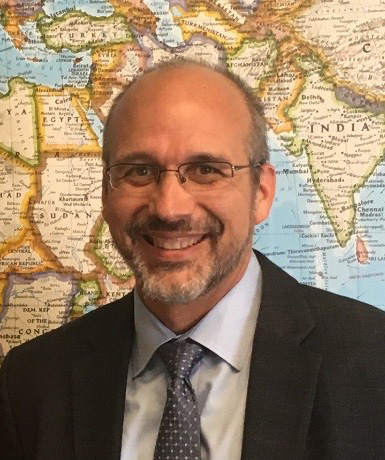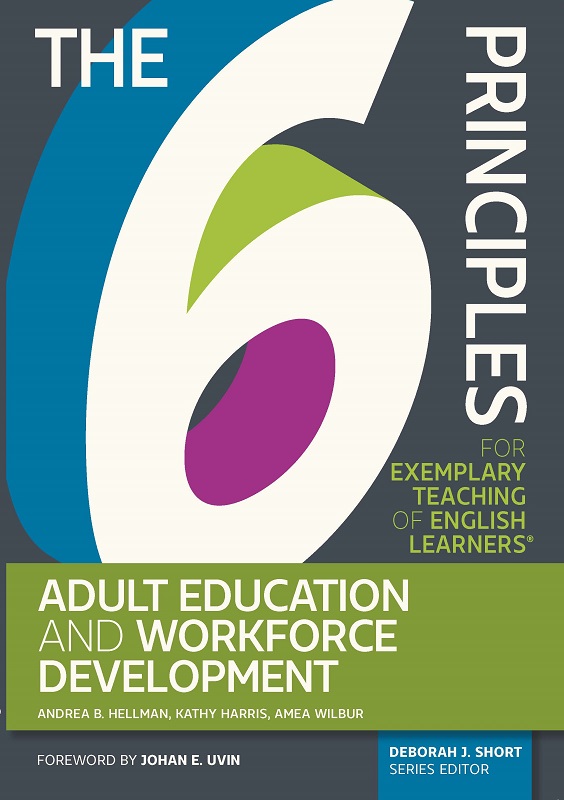|
 If you attended our 2019 Convention in Atlanta—or Chicago in 2018—or even visited the TESOL Bookstore or website recently, I do not need to introduce you to The 6 Principles for Exemplary Teaching of English Learners®. But if you have somehow missed it (or just want to learn more), let me tell you about The 6 Principles initiative and how we are using it to advance our strategic goal of increasing TESOL knowledge and expertise. If you attended our 2019 Convention in Atlanta—or Chicago in 2018—or even visited the TESOL Bookstore or website recently, I do not need to introduce you to The 6 Principles for Exemplary Teaching of English Learners®. But if you have somehow missed it (or just want to learn more), let me tell you about The 6 Principles initiative and how we are using it to advance our strategic goal of increasing TESOL knowledge and expertise.
As we approached TESOL’s 50th anniversary in 2016, we sought to extend our leadership role by establishing a foundation and unifying vision for English language teaching excellence across all contexts. From that aspiration, The 6 Principles was born. The principles were designed to be applicable for all classrooms focused on English as a second or new language or English as a foreign language and would serve educators of children and adults, dual language learners, emerging bilinguals, and multilingual students.
 Debuting the 6 Principles Debuting the 6 Principles
Based on extensive reviewer feedback during early development, we decided to apply The 6 Principles to the U.S. K–12 context for the first volume in our 6 Principles suite of products. In March 2018, we released The 6 Principles for Exemplary Teaching of English Learners: Grades K–12, where it created a minor sensation at the Chicago Convention. Along with the book, we also gave away more than 8,000 copies of The 6 Principles Quick Guide, which outlines the initiative and provides a framework for considering the principles in practice. The book quickly became our best seller, outpacing all other TESOL Press books within the first 6 months of sales. To date, we have sold more than 10,000 copies worldwide. Increasingly strong sales outside the United States show the demand for the principles and their applicability across multiple, diverse contexts.
I salute my predecessor, Rosa Aronson, and our publishing director, Myrna Jacobs, who recognized the need for a set of principles, recommended practices, and launched the initiative. I am very grateful to the writing team of Deborah Short, Helene Becker, Nancy Cloud, Andrea Hellman, and Linda New Levine who, with additional support from Sherry Blok and Karen Woodson, brought the 6 Principles vision to life.
The 6 Principles Suite
At the Convention in Atlanta earlier this year, we debuted The 6 Principles Quick Guide for Paraeducators to provide a concise professional development tool for paraeducators in their critical role of supporting English language learners. Also in Atlanta, we released our second book, focused on Adult Education and Workforce Development. Drawing examples from a variety of adult education programs, including settlement programs, adult basic education, and family literacy, this volume seeks to share the 6 Principles vision of adults learning English in preparation for the workforce. The audience includes teachers in adult education and workforce development programs globally, teachers in integrated English language and citizenship education programs, ESOL and literacy tutors, volunteers in community programs, and staff and volunteers at agencies that serve adults who need to learn English. Be sure to take part in our first 6 Principles Book Club, where you can participate in a live discussion with the authors of the Adult Education and Workforce Development book.
The third book in the series, English for Academic and Specific Purposes, is scheduled for publication before the end of the year and will reach teachers in intensive English programs (IEPs), English for academic purposes (EAP) contexts, and work-related professional programs (ESP); administrators of IEP, EAP, and ESP programs; teachers of standardized language tests preparation courses; and teacher trainers.
Professional Learning With The 6 Principles: Workshops and Institutes
Equally as important, at the Convention in Atlanta, we launched our first professional learning program on The 6 Principles, an “Introduction to the 6 Principles: Training of Trainers” preconvention ticketed workshop, which quickly sold out and provided more than 80 educators with an opportunity to engage in training activities they could use to support teacher professional development. We have since developed 6 Principles workshops for rural educators in Oklahoma, USA, and community college educators in Tennessee, USA, and a series of 6 Principle webinars for English teachers working in binational centers throughout Peru. The 6 Principles Institutes are also in development and will provide a series of training opportunities for K–12 teachers; teachers of adult English learners; trainers, coaches and administrators; and English language educators in EFL contexts beginning in the Fall of 2019. For more information about participating in The 6 Principles Institutes or bringing one to your institution, please contact learn@tesol.org.
Expanding TESOL Knowledge and Expertise
The 6 Principles, of course, are more than a series of products. They are fundamental principles that establish a baseline for excellence in English language teaching and are a perfect embodiment of one of the key strategic outcomes we are trying to achieve through our Strategic Plan by expanding TESOL knowledge and expertise through leading the development and delivery of English language teaching expertise, research, and information that address current and emerging trends in the profession.
We are, therefore, committed to sharing The 6 Principles with TESOL educators in as many ways as possible. As I have described, we have already published two books and two quick guides, and more are on their way. We have also developed a comprehensive website at www.the6principles.org where we lay out the principles, offer practice classroom activities, provide session recordings, and share other information and resources.
The 6 Principles unite the profession across contexts and are for all teachers of English learners. In developing books, quick guides, web resources, workshops, and virtual seminars, we are working hard to deliver them to our broad audience. You should certainly look forward to seeing our next set of offerings at TESOL 2020 in Denver, Colorado, USA, but I also encourage you to be in touch with me; Myrna Jacobs; Heidi Faust, our professional learning and research director; and our board, if you believe that there are contexts and audiences we can reach in other ways. We would love to know how you are using The 6 Principles in your classrooms, districts, or communities, and would love to see you share your ideas on myTESOL.
Thank you for everything you do to promote the exemplary teaching of English language learners in your classrooms and beyond.
Christopher Powers
TESOL Executive Director
Email: cpowers@tesol.org
Twitter: @TESOL_Powers
|